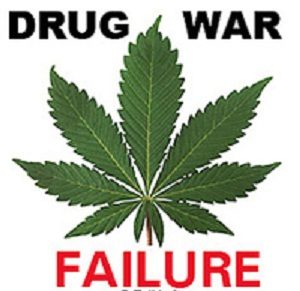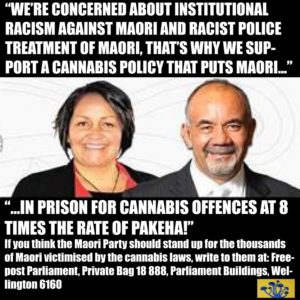
Now that New Zealand has finally gathered the gumption to have a national discussion about cannabis, the end of prohibition is in sight. The reason why it was so hard to get a conversation about cannabis started is that prohibitionists have long known that as soon as it did, inevitably the forces of freedom would win, as they had both evidence and compassion on their side.
But what does compassion have to do with it?
As it turns out, everything. You simply cannot understand the cannabis law in New Zealand unless you understand the compassionate-malicious spectrum of human personality, for cannabis prohibition will not end in New Zealand until it is seen for what it is: naked sadism.
It’s time for a look into the ghoulish horrorscape that is the mind of a prohibitionist.
“In plain words, what moves them is the psychological aberration called sadism.” – H.L. Mencken
H.L. Mencken was an American philosopher-king active in the first half of the 20th century. Realising that satire was one of the only ways to get a complex message through the thick skulls of his fellow Americans, he took the piss out of the cultural peccadilloes of his time, one of the stupidest of which was alcohol prohibition.
In a small, self-published volume in 1926, Mencken observed that “Prohibition has made the use of alcohol devilish and even fashionable, and so vastly augmented the number of users.”
The infuriating thing for anyone who has tried to get the law to reflect justice and compassion, is that exactly the same is true of cannabis today.
What’s the past-year usage rate of cannabis in New Zealand, where growers are jailed? 14.6%.
What’s the past-year usage rate of cannabis in the Netherlands, where it’s sold openly? 5.4%.
That data is from 2008 – if you want something more recent, there’s a report that states teen cannabis use has not increased in Colorado since measures were taken to legalise it a few years ago.
It can be seen that cannabis prohibition has not reduced the number of people who use it – if the objective was to reduce the health problems that cannabis ostensibly causes, then prohibition is, prima facie, a failure. So why has the Drug War raged on for decades despite the lack of evidence that it is effective?
Because it is not effectiveness that is the issue.
Cannabis prohibition does not have to help the nation to be supported by prohibitionists. It only has to harm the sort of person who uses cannabis.
This is why John Key can so glibly claim that the Police are not really prosecuting anyone, and so there is no hurry to change the law – the Police are not prosecuting National voters. Most National voters own their own homes, and so can smoke cannabis in privacy away from people who might dob them in. Most Labour voters live in shared housing, and more often have to risk smoking in public.
Make no mistake: the point of the cannabis law is intentionally to fuck over the sort of people most feared by the control mechanism and its lackeys – the freespirited, the creative, the spiritual, the kind, the young, the rebel, the unbrainwashed.
Why is John Key vicious like this? Perhaps this is revenge of the nerds, Kiwi style. Key, like Peter Dunne, was severely bullied at school, and perhaps supporting cannabis prohibition is one way that they wreak their petty revenge on the braver kids who experimented with life rather than striving to get ahead.
Another possible explanation is the the old, uptight white male that John Key represents deeply resents the ruthless historical process that is stripping him of his privilege and is lashing out.
When I was a barman, the worst customers were not the young men who suffered most of the demonisation but the male menopausal men who felt their plummeting testosterone and the lack of physical dominance that came with it, and knew that their best days were in the past. Perhaps John Key is of an age where his erectile health is no longer reliable, and he bitterly resents the young people who know that using cannabis enhances the pleasure of lovemaking.
The truth is probably that cannabis prohibitionists are simply malicious, petty-minded bigots who support harm for harm’s sake, as long as it isn’t happening to them.




